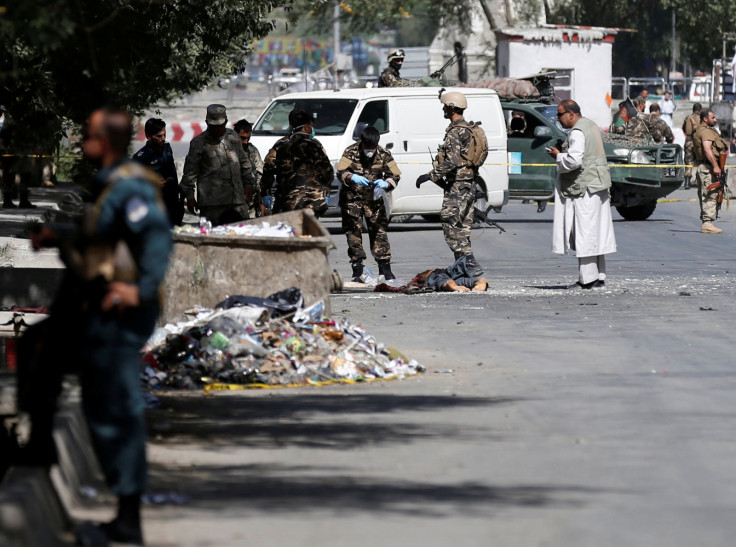Afghanistan mourns Kabul blast victims as President Ghani vows 'revenge'
President Ashraf Ghani pledges those behind Kabul bombings would be severely punished.

Afghanistan has declared a day of mourning on Sunday, 24 July, to pay tributes to the victims of the Kabul twin bombing, claimed by the Islamic State (Isis). President Ashraf Ghani has vowed that those behind the bombings would not go unpunished.
The suicide blasts, one of the deadliest in the last decade, on Saturday, 23 July, ripped through a gathering in the Afghan capital killing as many as 81 people and injuring 230 others. The attack targeted a rally staged by the Hazara minority. While there were two explosions, a third suicide bomber was thought to have been shot dead by Afghan security forces before he could blow himself up.
In a late night television address following the attack, Ghani promised: "I will get revenge on those who shed the blood of our citizens. Our enemies, by attacking civil liberties, think that they can divide us. But they will fail."
He added, according to Tolo news: "I have directed a special commission and the attorney general to investigate the incident and find those responsible."
The Afghan interior ministry has said there will be a nationwide blanket ban on any kind of public gathering for the next 10 days.
Meanwhile, the Afghan Taliban, which remains a dominant force but threatened by the rapid expansion of the IS in the war-torn country, has condemned the attack. Denying they have any hand in the attack, the group said it was a "plot to ignite a civil war" in Afghanistan.
A Taliban spokesperson added that the Islamist group, which has carried out a series of attacks on Afghan forces in the recent past, condemns any move which attempts to create ethnic and religious divisions in Afghanistan.
Condemnations have also been pouring in from across the world. While the UN called the bombings a "war crime", the US embassy in Kabul said it was a "cowardly" onslaught on "innocent lives".
© Copyright IBTimes 2025. All rights reserved.






















